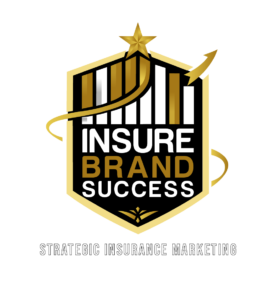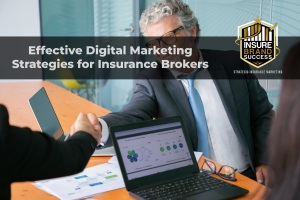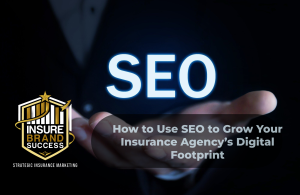In today’s digital world, a potential client’s first impression of your insurance agency is often formed by your website. Whether they’re searching for a local agent, comparing policies, or looking for educational content, your website serves as a 24/7 digital storefront. If your site is outdated, difficult to navigate, or slow to load, visitors are likely to leave—potentially straight into the hands of a competitor.
A well-designed website isn’t just about aesthetics; it’s a crucial component of a strong digital marketing for insurance agencies strategy. It impacts everything from insurance marketing strategies to client acquisition and retention programs, making it one of the most important investments an insurance agency can make.
How Web Design Impacts Your Insurance Agency’s Growth
A website is more than an online business card. It’s a powerful tool that influences lead generation, conversion rates, and customer trust. Here’s how strategic web design can help your insurance agency grow:
1. Enhancing User Experience (UX) to Convert Visitors into Clients
When someone lands on your site, they should immediately understand who you are, what you offer, and how to get in touch. A seamless, intuitive user experience (UX) can significantly improve conversion rates.
- Clear navigation: Your website should make it easy for visitors to find information on policies, get a quote, or contact your team.
- Mobile optimization: Over 60% of online traffic comes from mobile devices. A site that isn’t mobile-friendly will frustrate users and drive them away.
- Fast load times: Research shows that 40% of users will abandon a site if it takes more than three seconds to load. Speed matters.
2. Building Credibility and Trust with a Professional Design
Insurance is a trust-based industry. If your website looks outdated or unprofessional, potential clients may question the credibility of your agency. A modern, well-branded design conveys professionalism and expertise.
- Consistent branding: Use a clean design with your agency’s colors, fonts, and logo to create a cohesive look.
- Client testimonials and reviews: Showcasing positive client experiences builds trust and credibility.
- Secure website (SSL certificate): A secure site (indicated by HTTPS) reassures visitors that their personal information is safe.
3. SEO Optimization: Helping Clients Find You Online
Your website isn’t effective if no one can find it. Implementing SEO solutions for insurance helps your agency rank higher in search results, driving more organic traffic.
- Keyword optimization: Using relevant keywords like “affordable auto insurance” or “best life insurance policies” can improve search rankings.
- Local SEO: If you serve a specific area, optimizing for location-based searches (e.g., “best insurance agency in Dallas”) can attract local clients.
- Content marketing: Blogging about insurance topics improves SEO and positions your agency as an industry expert.
For authoritative SEO guidance, organizations like the Small Business Administration (SBA) offer valuable insights into digital marketing best practices.
4. Driving Lead Generation with Strong Calls-to-Action (CTAs)
Your website should be a lead-generation machine. Well-placed CTAs guide visitors toward taking action, whether that’s requesting a quote, scheduling a consultation, or signing up for a newsletter.
- Strategic CTA placement: Include buttons like “Get a Free Quote” or “Talk to an Agent” on key pages.
- Lead capture forms: Simple, user-friendly forms can help collect visitor information without overwhelming them.
- Live chat functionality: Offering real-time assistance can improve engagement and conversion rates.
5. Integrating Digital Marketing Strategies for Better Engagement
Your website is the foundation of your broader digital marketing for insurance agencies strategy. Integrating tools like insurance email marketing and social media strategies can further enhance client engagement and retention.
- Email marketing integration: Automated follow-ups and newsletters keep potential and existing clients engaged.
- Social media links: Connecting your website to LinkedIn, Facebook, and Twitter helps extend your online presence.
- Blog and educational content: Sharing valuable insights about insurance policies, industry trends, and client success stories can keep visitors coming back.
For deeper insights into successful marketing strategies, the Insurance Information Institute provides resources that highlight consumer behavior trends in the insurance industry.

Common Web Design Mistakes Insurance Agencies Should Avoid
Even the best insurance agencies can lose business due to poor web design. Here are some common pitfalls to avoid:
- Cluttered layouts: Too much text or too many images can overwhelm visitors. Keep it clean and simple.
- Lack of clear contact information: Ensure your phone number, email, and office address are easy to find.
- No search functionality: If clients can’t quickly find what they’re looking for, they’ll likely leave.
- Ignoring accessibility: Your website should be usable for all clients, including those with disabilities.
Investing in Web Design: A Smart Business Decision
A professionally designed website is a long-term investment in your agency’s success. It strengthens your brand, improves client acquisition, and supports insurance marketing strategies that drive sustainable growth.
If you’re unsure where to start, consulting with a web design expert specializing in the insurance industry can make all the difference. A tailored approach ensures your site not only looks great but also functions as a powerful sales tool.
For regulatory insights on insurance agency operations, the National Association of Insurance Commissioners (NAIC) offers guidelines that can help agencies navigate compliance and marketing regulations.
Frequently Asked Questions (FAQs)
1. Why is web design important for insurance agencies?
Your website is often the first impression potential clients have of your insurance agency. A well-designed site establishes credibility, enhances user experience, and supports lead generation. An outdated or hard-to-navigate website can push potential clients toward competitors. A professional design with clear navigation, engaging content, and strong calls-to-action ensures visitors stay longer and take the next step, whether that’s requesting a quote or scheduling a consultation.
2. How can SEO improve my insurance agency’s website traffic?
Search engine optimization (SEO) makes it easier for people searching for insurance services to find your website. By optimizing your site with relevant keywords, local SEO strategies, and high-quality content, you can rank higher in search engine results. This increases organic traffic, helping you attract more qualified leads without relying solely on paid ads. Agencies that incorporate SEO solutions for insurance see better online visibility and long-term growth.
3. What are some must-have features for an insurance agency website?
To maximize conversions and improve user experience, an insurance agency’s website should include:
- Mobile responsiveness: Ensures the site works seamlessly on any device.
- Clear calls-to-action (CTAs): Encourages visitors to request a quote or contact an agent.
- Easy navigation: A simple menu structure helps users find information quickly.
- Client testimonials and reviews: Builds trust and credibility.
- Educational blog content: Helps answer common insurance questions and improves SEO.
- Secure forms and online quote requests: Allows potential clients to engage with you easily.
4. How often should I update my insurance agency’s website?
Web technology and design trends evolve rapidly, so regular updates are crucial. Your website should undergo minor updates (such as blog posts, testimonials, or security patches) at least monthly, while a full redesign is recommended every 2-3 years. Updating your website frequently ensures it remains secure, competitive, and aligned with modern user expectations.
5. Should I integrate live chat on my insurance agency’s website?
Yes! Live chat provides real-time assistance to potential clients, helping them get answers to their questions instantly. This can improve user experience, reduce bounce rates, and increase conversions. Many clients prefer live chat over phone calls or emails because it’s convenient and fast. If you offer complex insurance policies, live chat can help clarify options and encourage users to take the next step.
6. How does mobile optimization affect my website’s success?
Mobile optimization is critical because over 60% of online searches now happen on smartphones. If your site isn’t mobile-friendly, visitors may leave due to difficult navigation, slow load times, or formatting issues. Google also prioritizes mobile-optimized websites in search rankings, meaning a poor mobile experience could hurt your SEO. Ensuring a smooth experience across all devices leads to better engagement and more conversions.
7. What role does branding play in website design for insurance agencies?
Your website should reflect your agency’s identity and build trust with potential clients. Consistent branding—including a professional logo, brand colors, typography, and messaging—makes your agency more memorable. Trust is crucial in the insurance industry, and a well-branded website reassures visitors that your agency is credible and reliable.
8. How can website speed affect client acquisition?
Page speed is a crucial factor in both user experience and SEO. Studies show that 40% of visitors will leave a website if it takes longer than three seconds to load. A slow website frustrates potential clients, leading to higher bounce rates and lost business. Optimizing images, minimizing unnecessary plugins, and using a reliable hosting service can help improve load speeds.
9. What type of content should I include on my insurance agency’s website?
Your website should provide valuable content that educates visitors and encourages them to take action. Key content types include:
- Service pages: Clear descriptions of your insurance offerings.
- Blog posts: Articles on insurance tips, policy explanations, and industry trends.
- FAQs: Answering common client questions builds trust and improves SEO.
- Client testimonials: Social proof helps potential clients feel confident in choosing you.
- Videos: Short explainer videos can make complex topics more digestible.
10. How can I measure the success of my insurance agency’s website?
Tracking key performance indicators (KPIs) can help determine if your website is effectively driving business growth. Some important metrics to monitor include:
- Website traffic: How many visitors are coming to your site?
- Bounce rate: Are people leaving after viewing only one page?
- Conversion rate: How many visitors are filling out quote request forms or calling your agency?
- SEO performance: Are you ranking for important keywords?
- Engagement metrics: How long are visitors staying on your site, and which pages are they viewing the most?
Tools like Google Analytics can provide valuable insights into your website’s performance, helping you make data-driven improvements.

Your Website: The Cornerstone of Your Insurance Agency’s Success
A well-designed website is much more than a digital business card—it is the foundation of your online presence and a powerful growth engine for your insurance agency. In today’s competitive landscape, potential clients research insurance options online before making a decision. If your website fails to engage, inform, and convert visitors, you risk losing them to competitors who offer a more seamless and user-friendly experience.
How Web Design Impacts Your Insurance Agency’s Growth
A thoughtfully designed website supports multiple aspects of your business, from lead generation and brand credibility to client retention and customer service. When built strategically, your website can:
✅ Attract and Convert More Leads: A user-friendly, informative website makes it easy for potential clients to request quotes, learn about policy options, and reach out to your agency for more information. A seamless experience keeps users engaged and encourages them to take action.
✅ Enhance Trust and Credibility: Trust is crucial in the insurance industry. A well-structured website with professional branding, secure browsing (SSL certification), and client testimonials reassures visitors that they are dealing with a reputable agency.
✅ Support SEO and Digital Marketing Efforts: Your website serves as the foundation for all your digital marketing for insurance agencies strategies. A well-optimized site ensures you rank higher on search engines, making it easier for prospective clients to find you.
✅ Provide 24/7 Customer Support: A well-designed website acts as a round-the-clock customer service representative, answering frequently asked questions, providing policy information, and offering self-service options such as online claims filing or quote requests.
✅ Strengthen Client Relationships and Retention: Features like email newsletter sign-ups, blog content, and automated chat support help keep existing clients engaged, informed, and satisfied with your services. A website that evolves with your clients’ needs encourages long-term loyalty.
Key Components of a High-Performing Insurance Website
To ensure your website serves as an effective growth tool, it should include:
- A modern, mobile-friendly design: More than 60% of online traffic comes from mobile devices. A responsive design ensures your site looks and functions well on all screen sizes.
- Fast loading speeds: If your site takes too long to load, visitors will leave before they even see your offerings. Optimizing images, reducing unnecessary code, and using reliable hosting services can improve speed.
- Clear, compelling calls-to-action (CTAs): Buttons like “Get a Free Quote” or “Schedule a Consultation” should be prominent and easy to find.
- SEO-friendly content: Blog posts, service pages, and FAQs optimized for search engines improve your rankings and attract more organic traffic.
- Secure and user-friendly contact forms: A simple, intuitive form encourages users to reach out without feeling overwhelmed.
By prioritizing these elements, your insurance agency’s website will not only serve as an online presence but as a lead-generation powerhouse. Investing in insurance marketing strategies that enhance web design and user experience will set your agency up for long-term success. 🚀




